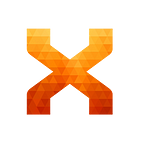The introduction of Blockchain technology has begun a revolution in the way that companies can connect with each other in a trustworthy manner that can be easily checked.
Drawing comparisons with the way the Internet revolutionized the way corporations communicated and interacted with each other, the blockchain and the blockchain.
Smart contracts would change the business environment once again, introducing in an easily automated way the much needed aspect of confidence and tamper-proof verification. As with the Internet, companies that integrate with the blockchain will gradually find themselves able to reduce their payment costs, legal fees and speed up their verification processes. Companies who are not going to lose out to speedier, nimbler and more cost-effective rivals. In financial markets , for example, trade occurs in a fraction of a second. In fact, it can take days to exchange assets and payments, with numerous banks and clearinghouses involved. That can result in mistakes, delays, extra costs and unnecessary risks.
How to incorporate their current data with the blockchain is the challenge that corporations face.
To interact with real world data, decentralized applications need an interface.
The explanation for this is that the formats are radically different.
Blockchain is deterministic, which means that it represents a particular sequence of events that take place in sequential order-a series of transactions-one after another. Accessing data outside the chain would require data points that are not sequential, so it would be impossible to use or make sense of Blockchain. This feature of Blockchain provides it with immutability, but versatility is reduced.
However, the off-chain universe is non-deterministic, meaning that the events are not reported in the particular order that they have taken place, which causes accountability issues. At any point, data points can be generated from and understood, offering greater versatility, but having trouble interacting with the Blockchain.
Coupled with this, we find the growing need for the ability for smart contracts to access data with the advent of Blockchain and smart contracts, as smart contracts can not work without it. Thus, we notice that only a tiny fraction of their capacity is realized by Smart contracts.
Smart contracts have real world implementations in nearly every area possible, with the help of Oracles. The details can be used to execute the contracts and provide use cases once data reaches the Blockchain, which can disrupt industries across the board. Blockchains, as an example, may help reduce the distance from days to minutes, even to zero, for the entire lifecycle of a transaction. By 2022, ledger innovations could save banks $15–20 billion a year by reducing regulatory, settlement and cross-border costs, according to a study by Santander InnoVentures, the Spanish bank’s Fintech investment fund.
EGEX is the first MultiChain Oracles Platform, a ready-made, self-sufficient multi-chain ecosystem that brings together rating-based data sources and offers high-quality data exchange and dispute resolution resources.
In supporting a multichain Oracles network that uses the three fastest growing blockchains-Ether, NEO and EOS, EGEX provides a unique solution.
We are opening the door to allow businesses to enter the ecosystem of the blockchain. EGEX provides a structure and the requisite tools to enable a smoother transition to the Blockchain.
EGEX ‘s performance in the future will be driven by this need for blockchain solutions. Our vision is for EGEX to become the default standard framework for MultiChain Oracles across a variety of industries, including, but not limited to, Finance, pharmaceuticals, shipping, ticketing, real estate, manufacturing and the supply chain of hundreds of trillions of dollars worth of markets.
